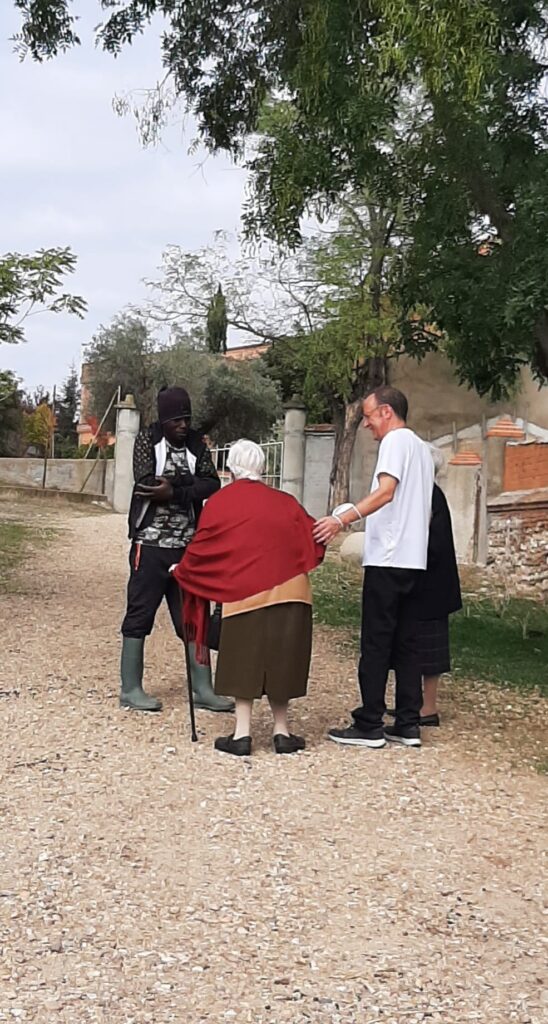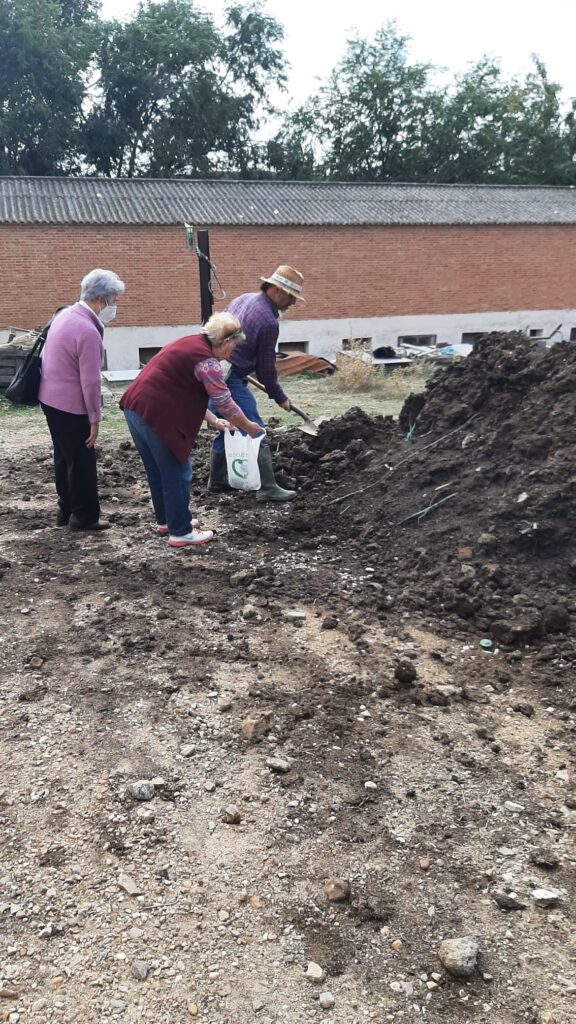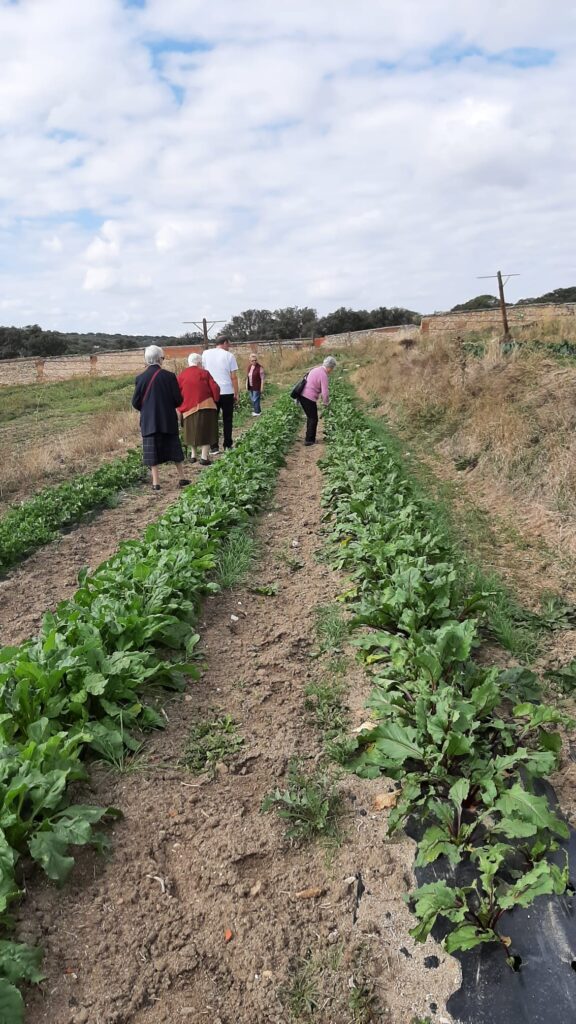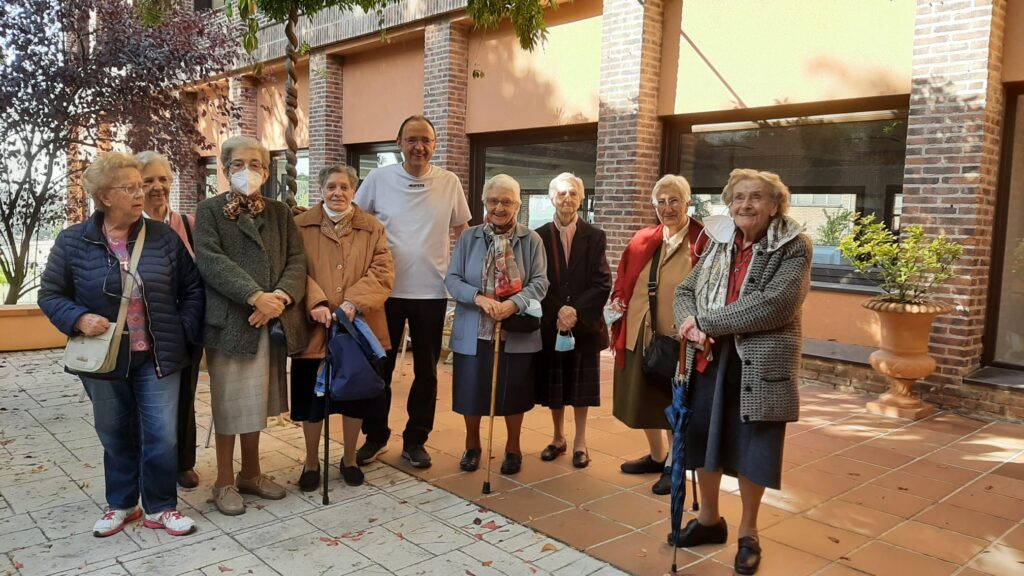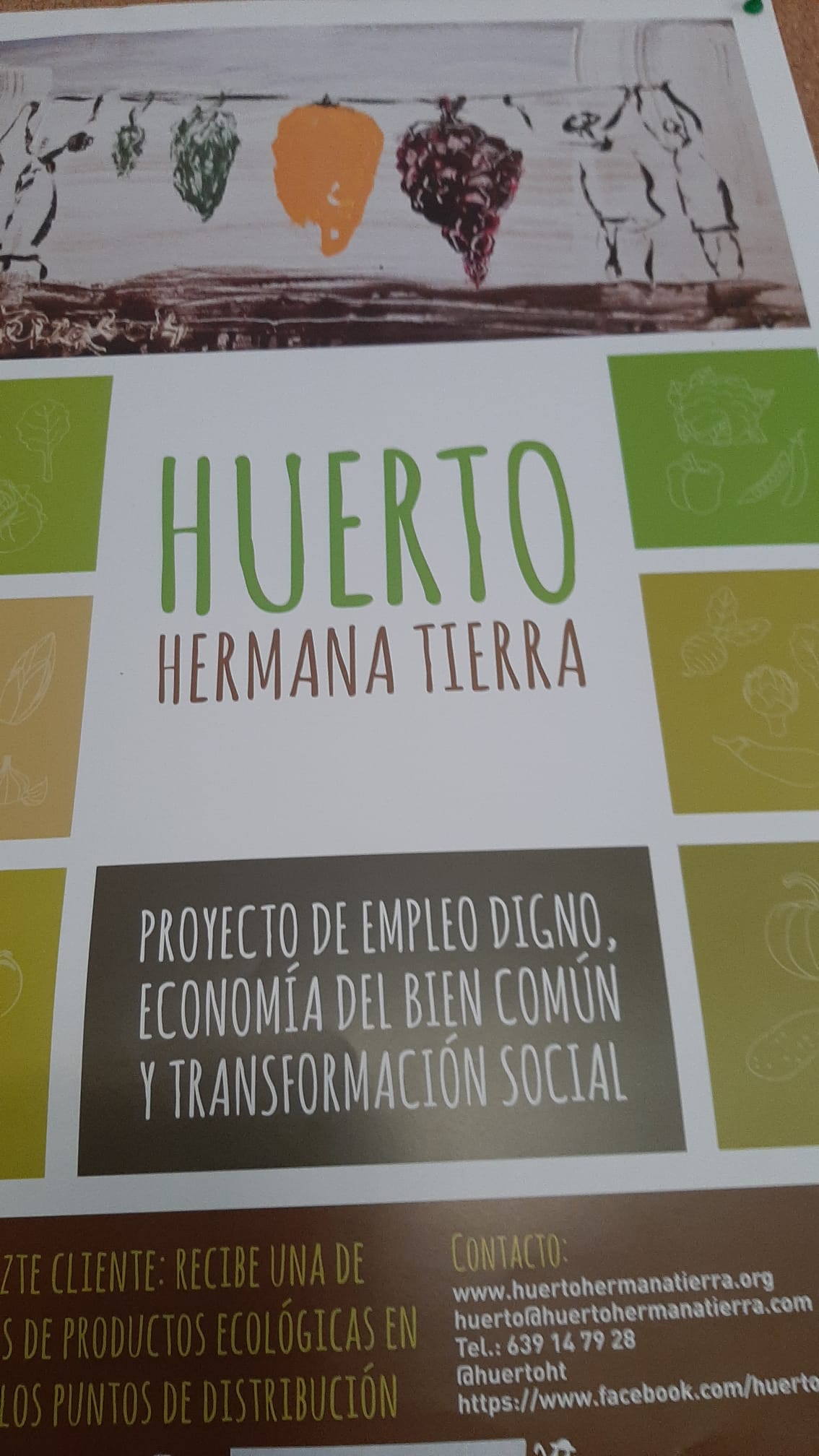
23 Oct MIGRATION, SOCIAL ECONOMY, JPIC… and elderly Sisters/spain
WE SHARE THE SUCCESS OF THE PIRINEOS COMMUNITY IN MADRID IN ITS SEARCH TO GET INVOLVED WITH MIGRANTS, TO PROMOTE THE SOCIAL AND SOLIDARITY ECONOMY AND PRAISE THE CREATOR …
Laudato Si!, that is how we began the year, the Season of Creation. So what can we do? We wanted with our humble prayer to do “something more… find a possible way of reaching out”. Taking into account our simplicity and our possibilities, we wanted to become aware by looking at and touching with others, this care for our common home and the pain of so many migrants. So we set out, nine Sisters of the community, towards SERCADE.
It is a project of the Franciscan Capuchins in el Pardo (Madrid) who for a very long time now have housed a beautiful statue of the Dead Cristo of the XVI century in their monastery. And today this Risen Christ has lead them to a re-conversion and to continue singing laudato si, like St. Francis of Assisi. They have converted the land of their orchard, thanks to a daring Project, into an ecological orchard, which is tended by four immigrants, who, in this way, can continue their formation, learning the language, and follow some professional formation workshops. This will help towards their integration and the regularization of their situation. It is so good to conjugate the verb “love everyone and all without borders”, to which Pope Francis refers so often: “Today the earth and the poor cannot wait any longer”!
“This is a reference, a focal point”, said one of the Sisters, while we were in that space for “walks and recreation” for many people in the middle of the Sierra of Madrid, where, every Sunday, people sell the vegetables they grow, allowing the land to “be earth”, growing lettuces, tomatoes, lovely fresh onions…selling them in front of the church. Now so many people have become involved, as volunteers or “clients”, according to Fr. Jesus, the project co-ordinator, or who at least ask themselves: What can I do?” And what about us? As well as collecting one the lively baskets that they prepare each week, we celebrated Our Lady of Pilar, with a fine ecological stew, made of spinach and potatoes…
We suddenly had an idea. We could be “clients’ and we could share with them, as well, as our prayer, the amount of money that we saved on food as a result of our friday fasts, in solidarity with them. It would give a sense of a chosen commitment if we bought one of their baskets once a month, knowing that it is “small gestures” that give rise to large enterprises of tenderness, compassion that revolutionize the “gospel”, “make reparation”, and are signs of what is essential, though invisible to many, but which for the Heart of the God, is an embrace of active hope which rebuilds his dream for fraternity.
M José Tuñón, aci

